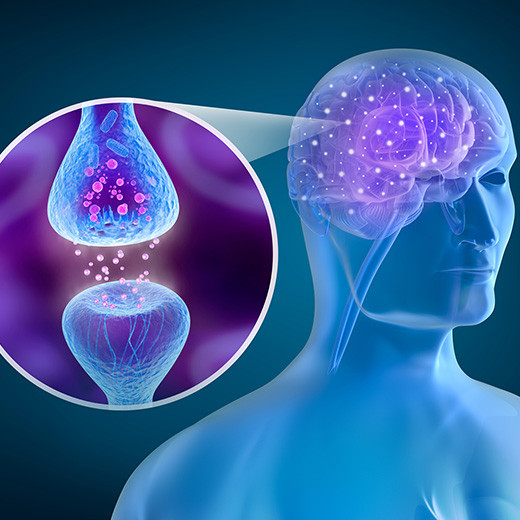Endocannabinoid System: Interesting Things You Should Know About This Biological System.
Jul 1st 2020
The endocannabinoid system or ECS is a biological system composed of endocannabinoids. In simple terms, "endocannabinoid" means cannabis-like substances that occur naturally in our bodies. It’s a crucial part too.The ECS is made up of three parts: the Endocannabinoids, the Receptors in the nervous system, and around the body where the endocannabinoids and cannabinoids bond with, and the Enzymes, which help break down endocannabinoids and cannabinoids.Only until recently, the phrase "endocannabinoid system" isn't something that the general populace talked about (or even knew about, for that matter). But with the rising popularity of CBD (Cannabidiol) products, the mainstream media is now setting their sights on this once overlooked part of the body.
To help you out on your quest for knowledge, here’s what we know so far about the endocannabinoid system:
We Only Discovered the Endocannabinoid System a Few Decades Ago
A team of researchers led by Lisa Matsuda with the National Institute of Mental Health discovered it in 1990. Her team mapped out the DNS sequence linked to our brain's cannabinoid receptor and successfully cloned it. This is an impressive feat considering that we've already identified most of our bodily systems, like nervous, respiratory, cardiovascular, and endocrine systems, for over a century.
The Endocannabinoid System may Help Treat Pain and Inflammation
Research demonstrates the therapeutic effect of endocannabinoids on many ailments. The endocannabinoid system plays a role in immune and neuronal cell function, and both have a significant influence in pain we experience.For this reason, many are now seeking CBD products as a treatment for their symptoms, especially skin-related ones. Anyone looking for an alternative form of medication should consider trying a CBD ointment to help fight pain and inflammation.
Humans Aren't the Only Species with Endocannabinoids
Your furry friends have it too! In fact, all animals with a vertebrae have an endocannabinoid system. Endocannabinoids are compounds in the body that react with the same receptors triggered by THC, which is a psychoactive ingredient in cannabis. Studies suggest that endocannabinoids in both humans and animals play a significant role in metabolism, mood, energy balance, pain, inflammation, memory, sleep, and drug addiction.
Our Body has Two Main CBD Receptors
While they're not the only cannabinoid receptors present in our body, both CB1 and CB2 are the most extensively studied. The former is most prevalent in the brain, and it’s the one that interacts with THC to impart a psychoactive effect, while the latter is commonly found in the immune system.
This System is Integral to Our Health
The endocannabinoid system actively regulates our body's physical and mental status. In other words, it plays a role in maintaining homeostasis by helping the body to maintain balance and to operate optimally.Whenever our body detects an imbalance, it synthesizes cannabinoids that interact with cannabinoid receptors. In turn, these receptors stimulate a physiological response that encourages the body to revert back to its healthy state.
An Unhealthy Endocannabinoid System may Cause Certain Diseases
Understanding how important this body system is, it’s also easy to comprehend how an unhealthy one can be detrimental to our health. Building upon the previous fact, a condition coined by experts as endocannabinoid deficiency might be the cause of some conditions like migraine, fibromyalgia, irritable bowel syndrome, and many others. Many recent studies confirm this connection, with some showing that using CBD products can help treat these conditions.
Diet and Exercise can Boost the Endocannabinoid System
Anandamide, one of the most common endocannabinoids produced in your body, is responsible for what we call the “runner’s high”. You may associate this as a rise in endorphins, the “happy” chemicals that induce feelings of pain relief and pleasure. But it’s more than that.
Anandamide is named after the Sanskrit word for “bliss” because it produces many of the joyful feelings associated with meditation, yoga, and other uplifting activities. Scientists have found that prolonged exercise increases levels of anandamide.
Moreover, to boost your ECS, increase your intake of essential fatty acid. Incorporate into your diet omega 3, which is found in oily fish or healthy seeds like flax or hemp.

